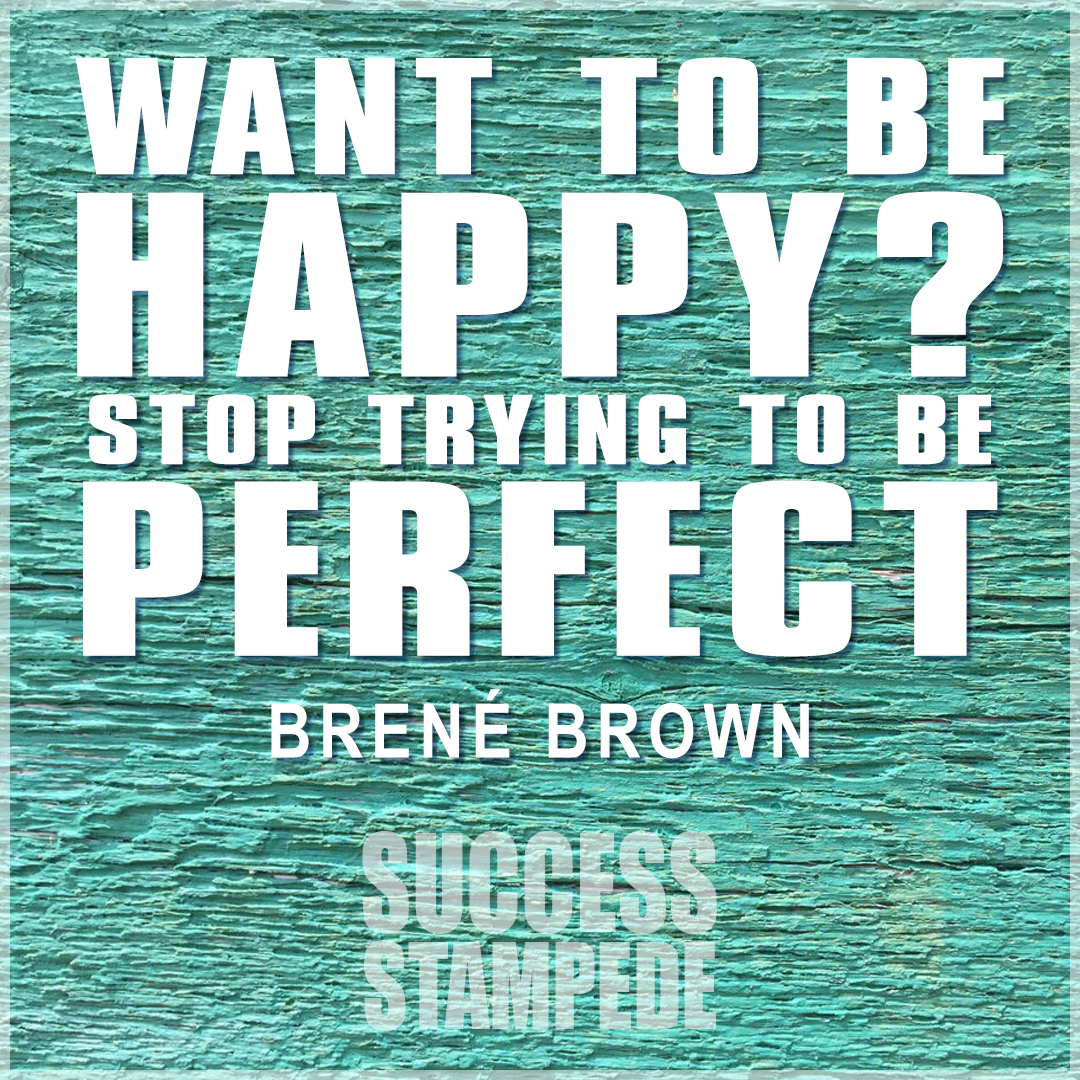As a recovering perfectionist: I thought I’d revisit this graphic and a quote from Brene Brown:
“Want To Be Happy? Stop Trying To Be Perfect”
Being perfect, or trying to be perfect is a thankless task. It causes self doubt and procrastination, and it is exhausting. What is that thing you’ve been working on but haven’t launched yet? or the conversation you want to have with someone and you want it to go perfect? Stop waiting, gather what you’ve got and go for it. Be authentic, and just be you!
I say I am a recovering perfectionist because I am more aware now of when these types actions are working against us.
More Recovering Perfectionist Thoughts:
Most of my perfectionist habits were picked up when I finally got what I thought was my dream job, as a designer for an ad agency. That’s where perfection was a must, we received many of our accounts by promising the creative deliverables in half the time as anyone else, one mistake on a print job meant we wouldn’t deliver on our promise, or we would have to eat the expense of reprinting. The same would happen if we were trying to make a publication deadline, and if something got through the system (no matter how many eyeballs had proofed it) that wasn’t perfect there is no reprint it’s there for the life of that publication printing.
As a recovering perfectionist, some of the perfectionistic habits I have are healthy, especially when it comes to work quality, those are the ones I try to hold on to.
I was once the co-owner of a sandwich shop, where we all had to deal with our own forms of perfectionism, some could be viewed as healthy perfectionism and worked in our favor and some would look like unhealthy perfectionism. For example, some of our employees had in their mind what a perfect sandwich was, and if their vision never included mayonnaise then quite often we would get complaints that the mayo was left off a customers sandwich.
A perfectionist mentality came in handy when it was focused on making sure every order request was met. When an order was wrong we knew we had a chance to anger or lose a customer. One day during a Friday lunch rush there was a 15 minute wait for walk-in take-out orders, like most working people our customers counted on getting in and out so they could eat and get back to work on time. So when you wait that long and your order is wrong it can trigger that Incredible Hulk gene in some. I remember one day one of our construction industry customers had waited about 20 minutes on 5 sandwiches for the crew, he left only to return 10 minutes later to Hulk smash his way through the door, with a half unwrapped sub letting everyone know there was unwanted mustard on his sandwich.
We had a very long bar/serving counter on one side of the restaurant, which is where he decided to throw the half wrapped sandwich, it quickly slid down the bar like a jet trying to take off from a runway, it was about that time when my partner came out of the kitchen to see what the commotion was about. The sub hit him right in the chest and even though his reflexes kicked in and he caught the sub, and mustard splattered everywhere. Mustard really shows up well on a hunter green work shirt, it was tense and funny all at the same time. Yet another example of when some healthy perfectionism could have come in handy.

